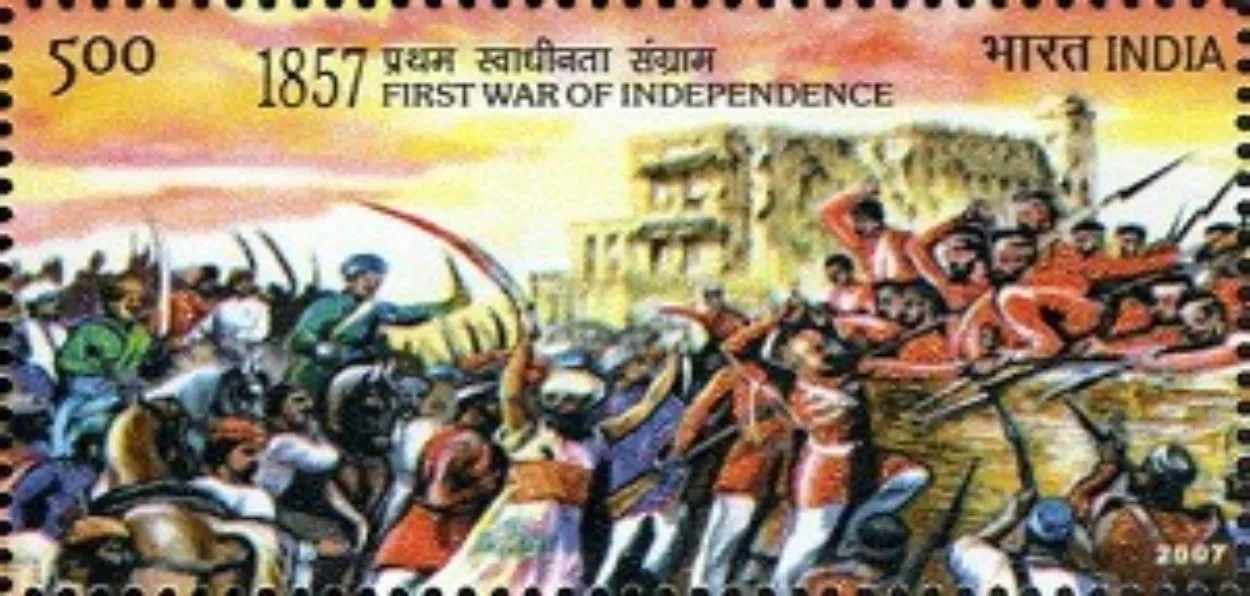
Saquib Salim
“At this time (second or third week of May 1857) Walidad returned from Delhi to Malagarh (in Bulandshahr) by way of Dadri and Sikandrabad. That rebel (Walidad Khan) and the Gujars of Dadri, and Bishan Singh and Bhagwant Singh, and Umrao Singh, etc. meeting together, plotted the destruction of the Government; the Gujars from this ....”
This statement was recorded by Vakil Shivbans Rai in Bulandshahr (Uttar Pradesh) in 1858 while trying the Indian revolutionaries for raising the flag of freedom struggle against the foreign rule.
Bulandshahr has yet to be recognised as one of the important centers of the first war of national independence in 1857 where Walidad Khan led the freedom struggle with the help of Gujar chiefs of the region.
Walidad, a distant relation of Bahadur Shah Zafar, was in Delhi when the revolutionaries raised the flag of revolt against the British on 11 May 1857. He was given the charge of Bulandshahr region, which comprised a large territory including Aligarh. He immediately reached his Malagarh fort (a mud fort in Bulandshahr district from where he ruled) and joined hands with Gujar chiefs like Umrao Singh. Within a few weeks, the whole region was under his control.
English army officer Colvin reported to Brigadier-General Havelock in July 1857, “Punjab and Upper India to Meerut and the Hills. In all these parts tranquility prevails, but immediately below Meerut a rebel Nawab named Wallydad Khan has taken possession of the country for some distance and interrupts communication.”
William Muir, from Kanpur, also reported to Havelock on 6 August 1857, “Many of our Meerut communications seem to have been interrupted by this rebel (Walidad) and his emissaries, who are now in possession of Aligarh. Walidad Khan had advanced post with guns to Gulaothi between Malagarh and Meerut.…Mr. Williams says we cannot attack Malagarh safely until either the Hindun or the Yamuna bridge is broken, and the attack thus intercepted from Delhi. He thinks we could not hold it, and that the effect of abandoning it would be worse than not attacking it. He has pressed on the Brigadier-General at Delhi the necessity of breaking the Hindun Bridge. Soon after it was broken by his force, the rebels repaired it for the Bareilly Brigade.”
Colvin also informed the Governor General, “Bulandshahr has been seized by a neighbouring Nawab (Walidad), some distant relation of the Delhi family, and Major-General Hewitt, commanding at Meerut, does not consider that he has sufficient force to drive Nawab’s party out, and re-occupy the place.”
Walidad was in charge of an important front in the war. Bulandshahr blocked a road for the English reinforcements to Delhi. That was why Nana Saheb and the Jhansi Brigade coordinated with him. His forces swept across Bareilly, Aligarh, Etawah, Agra, and adjacent regions.
Walidad asked for more force from Bahadur Shah Zafar to strengthen his position against the British. He wrote, “Although I have annihilated the Firangis (Europeans) stationed at Bulandshahr and have left no trace of them in the district still it is not possible to extirpate them and to carry on the revenue administration without the Royal army.” Bahadur Shah Zafar ordered Golab Singh, Ram Chandra, and Dhanpat Rao to move with their soldiers to help Walidad in his war efforts.
Walidad was one of the biggest threats to the English forces in the region around Delhi. Colvin reported to William Muir in August 1857, “It is important that you should know that Walidad Khan of Malagarh has sent one of his relations to take possession of Aligarh: with the object of establishing a regular Government, and collecting revenue to be sent to Delhi. This adds to the extreme importance of crushing Walidad Khan. Funds will soon be running short at Delhi, and to stop a supply of these is of vital consequence….. But the importance is every day becoming greater that Malagarh should be swept clean.”
On 1st October 1857, the British forces were able to capture Malagarh and bombed it. In the process, Lt. Home, who had been awarded the Victoria Cross for bombing the Kashmiri Gate in Delhi a few days ago, was killed. But, Walidad could not be killed or captured.
Malagarh could not be captured before the fall of Delhi. Rather, the army units that were employed to win Delhi were later sent to defeat Walidad Khan and his Gujar comrades. Walidad Khan, his wife Hissea Begum, Nahar Singh, Massahub Gujar, and other leaders found their properties confiscated even though many of them evaded capture.
ALSO READ: Standup comedian Rehman Khan on how he addressed myths about Muslims
:W. Muir reported in October 1857, “Walidad with 500 followers reached Bareilly on the 5th instant and waited on Khan Bahadoor. The latter gave him 4 Pultuns, 1100 Cavalry (the numbers you know in these accounts are not worth much), and two guns for the reconquest of Malagarh.”
Saquib Salim writes on History and heritage
